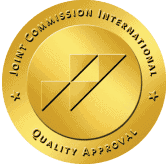Recognizing the Warning Signs: When Social Drinking Becomes Something More
You might notice subtle changes first – a friend’s increasingly shaky hands during morning meetings, or how they’ve started making excuses to avoid social gatherings that don’t involve alcohol. These seemingly small shifts can signal something much larger brewing beneath the surface. When someone transitions from occasional social drinking to alcohol dependency, the warning signs often appear gradually, making them easy to dismiss or rationalize away.
The statistics paint a sobering picture: alcohol use disorder affects millions of people, yet many cases go unrecognized for years. Physical symptoms like facial redness, weight loss, and the persistent smell of alcohol on someone’s breath represent just the tip of the iceberg. The real indicators often lie deeper – in behavioral changes, emotional patterns, and the growing priority alcohol takes over daily responsibilities and relationships.
Understanding these warning signs isn’t just about identifying problems in others; it’s about recognizing when drinking patterns cross the line from occasional indulgence to genuine concern.
Understanding Alcoholism vs Heavy Drinking
Alcoholism differs from heavy drinking in crucial ways that affect how you recognize and address drinking problems. Heavy drinking refers to alcohol consumption patterns that exceed recommended government guidelines, often including binge drinking sessions and frequent excessive consumption. This behavior poses health risks but doesn’t automatically indicate alcohol dependence.
Alcohol dependence involves specific behavioral, emotional, and physical signs that extend beyond consumption amounts. You experience alcoholism when drinking becomes compulsive, and you lose control over your alcohol use. Heavy drinkers may still maintain control over their drinking habits, prioritize daily responsibilities, and avoid feeling compelled to drink.
Key Differences in Control and Priority
Heavy Drinking Characteristics:
- Maintains control over drinking sessions
- Prioritizes work and family responsibilities
- Drinks excessively but stops when needed
- Functions normally without alcohol
Signs of Alcoholism:
- Cannot regulate drinking duration or frequency
- Gives alcohol precedence over daily activities
- Continues drinking even though negative consequences
- Requires alcohol to function normally
Physical and Emotional Indicators
Your body responds differently to heavy drinking versus alcohol dependence. Heavy drinkers experience hangovers and temporary discomfort after excessive consumption. Alcoholism symptoms include tolerance requiring increased amounts for the same effect, withdrawal symptoms when stopping, and using alcohol to prevent withdrawal discomfort.
Emotional signs of alcoholism manifest as mood swings, irritability, anxiety, and angry outbursts at seemingly minor situations. These emotional changes occur because alcohol profoundly impacts brain chemistry, creating psychological dependence that heavy drinking alone doesn’t produce.
Functional Alcoholism Recognition
Functional alcoholism represents a dependency where you maintain responsibilities like employment while relying on alcohol daily. A professional starting their day with alcohol to avoid withdrawal symptoms like shaking or anxiety demonstrates clear alcohol dependence, not heavy drinking.
You might recognize alcohol dependence through these specific patterns:
- Drinking first thing in the morning
- Unable to complete daily tasks without alcohol
- Setting drinking limits but consistently exceeding them
- Planning activities around alcohol availability
- Experiencing cravings between drinking sessions
Understanding these distinctions helps you identify when drinking patterns shift from problematic heavy consumption to alcohol dependence, requiring professional intervention.
Early Warning Signs of Alcoholism

Recognizing early warning signs of alcoholism helps you intervene before the condition progresses to more severe stages. These initial symptoms of alcoholism often develop gradually and may seem subtle at first.
Loss of Control Over Drinking
Loss of control over drinking represents one of the most significant early alcoholism signs. You may find yourself unable to stop drinking once you start, even when you planned to have just one or two drinks. This pattern often includes drinking until you’re fully intoxicated, even though your initial intentions were to moderate consumption.
Failed attempts to cut back or quit drinking entirely signal a loss of control. You might make promises to yourself or loved ones about reducing alcohol consumption, only to break these commitments repeatedly. This cycle of setting limits and then exceeding them demonstrates that your relationship with alcohol has shifted beyond normal social drinking patterns.
Memory blackouts during drinking episodes indicate severe loss of control. These episodes occur when alcohol impairs your brain’s ability to form new memories, leaving gaps in your recollection of events. Blackouts represent dangerous levels of intoxication and suggest that your drinking has escalated beyond safe limits.
Increased Alcohol Tolerance
Increased alcohol tolerance occurs when your body adapts to regular alcohol consumption, requiring larger amounts to achieve the same effects. This physiological change represents one of the clearest alcoholism symptoms and indicates that your body has developed a physical alcohol dependence.
You may notice that drinks that once made you feel relaxed or intoxicated no longer produce the same effects. This tolerance develops as your liver becomes more efficient at processing alcohol and your brain adjusts to its presence. The need for progressively larger amounts of alcohol to feel “normal” or achieve desired effects signals a dangerous escalation in consumption.
Tolerance often develops alongside physical dependence, meaning your body begins to require alcohol to function normally. When tolerance reaches this level, you may experience withdrawal symptoms when alcohol isn’t present in your system, creating a cycle where drinking becomes necessary to avoid discomfort.
Drinking in Dangerous Situations
Drinking in dangerous situations demonstrates a disregard for safety that characterizes alcohol abuse symptoms. This behavior includes consuming alcohol before or while driving, operating machinery, or engaging in activities that require clear judgment and coordination.
You might find yourself drinking even though you know the risks to your health, relationships, or legal standing. Examples include drinking at work, consuming alcohol while taking medications that interact dangerously with it, or continuing to drink after receiving warnings from doctors about health consequences.
Persistent drinking even though negative consequences shows that alcohol has become a priority over safety and well-being. This pattern might include drinking after receiving DUI citations, continuing alcohol use even though relationship problems, or maintaining consumption habits even after experiencing alcohol-related accidents or injuries.
The progression from occasional risky drinking to regular dangerous consumption patterns indicates that alcoholic symptoms are developing. Professional intervention becomes crucial when drinking behavior consistently puts you or others at risk, regardless of the consequences you’ve already experienced.
Behavioral and Social Signs

Behavioral and social indicators represent the most visible signs of alcoholism as they directly impact daily interactions and responsibilities. These patterns often emerge gradually and become more pronounced as alcohol dependency deepens.
Prioritizing Alcohol Over Responsibilities
Alcoholic symptoms frequently manifest when alcohol consumption takes precedence over work, family, or personal obligations. You may notice consistent absenteeism from work or school, declining performance in professional settings, or neglect of household duties. People experiencing alcoholism signs often skip alcohol-free events or modify their schedules to accommodate drinking opportunities.
The prioritization becomes evident when individuals consistently choose drinking over previously valued activities. They might miss important family gatherings, cancel commitments with friends who don’t drink, or arrive late to obligations due to drinking or recovering from its effects. This pattern represents a fundamental shift where alcohol becomes the organizing principle of daily life rather than a recreational activity.
Defensive Attitudes About Drinking Habits
Signs of an alcoholic include becoming defensive or hostile when questioned about drinking habits. You’ll observe individuals minimizing their alcohol consumption by lying about quantities consumed or frequency of drinking sessions. They often hide bottles around their home or workplace and become angry when others express concern about their drinking patterns.
Defensive behaviors escalate when confronted with evidence of drinking problems. People with alcoholism symptoms frequently rationalize their consumption by comparing themselves to others who “drink more” or claim they can stop anytime they choose. They may blame external circumstances for their drinking while rejecting suggestions about seeking help or reducing consumption.
Social Isolation and Relationship Problems
Alcohol abuse symptoms commonly include withdrawing from long-standing friendships and family relationships. You might notice someone replacing meaningful social connections with drinking companions or avoiding social situations where alcohol isn’t available. This isolation creates a cycle where drinking becomes both the cause and solution for loneliness.
Relationship deterioration occurs as drinking behavior creates conflict with loved ones. Partners, children, and close friends often feel helpless or frustrated watching someone they care about prioritize alcohol over their relationship. The person experiencing alcoholism signs may respond by further isolating themselves, creating deeper rifts in their support network, and increasing their dependence on alcohol as a coping mechanism.
| Behavioral Pattern | Frequency | Impact Level |
|---|---|---|
| Missing work/school due to drinking | 2-3 times per month | High |
| Lying about alcohol consumption | Daily | Severe |
| Avoiding non-drinking social events | 70% of invitations | Moderate to High |
| Relationship conflicts over drinking | Weekly | Severe |
Physical and Psychological Symptoms

Recognizing physical and psychological symptoms of alcoholism helps identify when drinking has progressed beyond casual consumption. These alcoholism symptoms manifest through distinct patterns that affect both body and mind.
Withdrawal Symptoms When Not Drinking
Withdrawal symptoms represent one of the clearest signs of alcoholism, typically appearing 6 to 12 hours after your last drink. These symptoms of alcohol abuse peak within 24 to 72 hours and indicate physical alcohol dependence.
Common withdrawal symptoms include:
- Anxiety and irritability that disrupt daily functioning
- Physical tremors and uncontrollable shaking
- Excessive sweating without physical exertion
- Rapid heart rate and elevated blood pressure
- Insomnia and disrupted sleep patterns
- Nausea and vomiting
Severe withdrawal can develop into delirium tremens (DTs), a life-threatening condition characterized by hallucinations, seizures, severe confusion, and extreme agitation. This dangerous complication requires immediate medical intervention and occurs in approximately 3-5% of people experiencing alcohol withdrawal.
Personality Changes and Mood Swings
Alcohol significantly alters brain chemistry, affecting neurotransmitters like serotonin, dopamine, and GABA that regulate emotions. These alcoholic symptoms create unpredictable personality shifts that strain relationships and daily interactions.
Notable personality changes include:
- Rapid mood swings from euphoria to anger or depression
- Decreased inhibition leading to inappropriate behavior
- Increased aggression and hostile reactions
- False confidence masking underlying insecurities
- Heightened jealousy and paranoid thoughts
- Worsening anxiety even when not drinking
These mood fluctuations continue during early sobriety as your brain chemistry rebalances. The emotional instability often leads to social withdrawal, unpredictable behaviors, and difficulty maintaining personal relationships.
Physical Health Deterioration
Chronic alcohol abuse causes progressive damage throughout your body systems. Long-term alcoholism signs include visible physical changes that become increasingly apparent over time.
| Health System | Physical Symptoms |
|---|---|
| Liver | Jaundice, abdominal swelling, fatigue |
| Cardiovascular | High blood pressure, irregular heartbeat |
| Neurological | Memory problems, coordination issues, tremors |
| Immune System | Frequent infections, slower healing |
| Skin | Facial redness, broken blood vessels, and premature aging |
Additional physical deterioration includes weight loss or gain, malnutrition from poor eating habits, and a generally disheveled appearance. Your tolerance increases as your body adapts to regular alcohol consumption, requiring larger amounts to achieve the same effects. This cycle of intoxication and withdrawal places enormous stress on vital organs, accelerating overall health decline and increasing risks for serious conditions like liver cirrhosis, heart disease, and neurological damage.
Impact on Daily Life
Alcoholism symptoms extend far beyond drinking behaviors and create devastating consequences across multiple areas of your life. The signs of alcoholism become most apparent when alcohol consistently interferes with your ability to function normally in work, academic, financial, and legal situations.
Work and Academic Performance Issues
Alcohol abuse symptoms directly compromise your professional and educational responsibilities through decreased cognitive function and impaired decision-making. Chronic drinking causes memory problems, attention deficits, and reduced coordination that make it difficult to complete tasks effectively.
Missing work or classes becomes a regular occurrence as you prioritize drinking over attendance. You may arrive late, frequently call in sick after heavy drinking sessions, or leave early to begin drinking. Your productivity drops significantly as alcohol affects your ability to concentrate, process information, and meet deadlines.
Workplace relationships deteriorate when alcoholic symptoms become noticeable to colleagues and supervisors. Slurred speech, unsteady movement, and the smell of alcohol on your breath create professional concerns. Your career advancement stalls as poor performance reviews accumulate and opportunities for promotion disappear.
Academic performance follows similar patterns with declining grades, missed assignments, and failed courses. Students with alcohol abuse symptoms often struggle to maintain the focus and discipline required for studying and test preparation. The cognitive impairment from regular drinking makes learning new material increasingly difficult.
Financial Problems Related to Drinking
Signs of an alcoholic frequently include mounting financial difficulties that stem from both direct alcohol-related expenses and indirect consequences of drinking behavior. The cost of maintaining an alcohol habit creates significant strain on your budget as tolerance increases and you require larger quantities to achieve the same effects.
Job loss or reduced income commonly results from poor work performance caused by alcoholism symptoms. Missing work due to hangovers, disciplinary actions, and eventual termination creates financial instability. Your earning potential decreases as your professional reputation and skills deteriorate.
Medical expenses accumulate as alcohol-related health problems develop. Emergency room visits, treatment for injuries sustained while intoxicated, and ongoing healthcare for chronic conditions associated with heavy drinking create substantial financial burdens. Insurance may not cover all alcohol-related medical costs, further increasing your debt.
Spending patterns shift dramatically as alcohol takes priority over essential expenses. You may neglect rent, mortgage payments, utilities, and groceries to fund your drinking. Credit card debt increases as you use credit to purchase alcohol or cover expenses you can no longer afford due to reduced income.
Legal Consequences and Risky Behavior
Alcoholic symptoms often manifest through increasingly dangerous behaviors that result in legal troubles and put your safety at risk. Drunk driving represents one of the most serious legal consequences, with arrests leading to license suspension, fines, court costs, and potential imprisonment.
Alcohol impairs judgment and reduces inhibitions, leading to aggressive behavior, public intoxication, and disorderly conduct charges. Bar fights, domestic disputes, and verbal altercations escalate more frequently when alcohol influences your decision-making. These incidents create criminal records that affect employment opportunities and personal relationships.
Risky sexual behavior increases significantly with heavy drinking as alcohol reduces your ability to make safe choices. Unprotected sex with multiple partners or strangers creates health risks and potential legal complications. Sexual assault charges may result from behaviors you wouldn’t consider while sober.
Property damage and theft charges can stem from alcohol-influenced poor judgment. Breaking windows, vandalizing property, or taking items that don’t belong to you while intoxicated creates legal liability and financial responsibility for repairs or replacement costs. These legal problems compound existing financial difficulties and create additional stress that often perpetuates the cycle of drinking.
When to Seek Professional Help
You don’t have to wait until your alcohol use reaches its most severe stage to seek help. Professional intervention becomes necessary when specific patterns emerge that indicate your drinking has moved beyond your control.
Recognizing signs of alcoholism in yourself requires honest self-assessment. You meet the criteria for professional help when you consistently drink more than planned, even though your best intentions to limit your consumption. This pattern reflects a loss of control that characterizes alcohol use disorder, affecting 29.5 million Americans over age 12 according to the National Institute on Alcohol Abuse and Alcoholism.
Your drinking interferes with your daily responsibilities across multiple areas of your life. Professional help becomes essential when alcohol affects your work performance, academic achievement, family relationships, or social connections. You’re experiencing alcoholism symptoms when you choose drinking over these important obligations repeatedly.
Withdrawal symptoms signal physical dependence that requires medical supervision. You need professional support when you experience tremors, sweating, anxiety, nausea, headaches, or insomnia when you stop drinking. These symptoms of alcohol abuse can escalate to dangerous conditions, including seizures or delirium tremens, which can be fatal without proper medical care.
Your safety and the safety of others become compromised when you drink. Professional intervention is necessary when you drive under the influence, engage in risky sexual behavior, or put yourself in dangerous situations while intoxicated. These alcoholic symptoms demonstrate impaired judgment that creates serious legal and personal consequences.
| Warning Sign | Professional Help Needed When |
|---|---|
| Loss of Control | Drinking more than planned consistently |
| Life Interference | Alcohol affects work, school, family, or social life |
| Withdrawal Symptoms | Physical symptoms when stopping drinking |
| Dangerous Behavior | Driving drunk or engaging in risky activities |
| Health Problems | Continuing to drink even though physical/mental health issues |
| Memory Issues | Experiencing blackouts or memory loss |
You continue drinking even though you know it worsens your physical or mental health problems. Professional help becomes critical when you recognize that alcohol is causing or aggravating medical conditions, depression, anxiety, or other mental health issues, yet you can’t stop drinking on your own.
Healthcare providers offer essential evaluation and treatment planning for alcohol use disorders. They assess your specific situation using standardized tools like the Alcohol Use Disorders Identification Test (AUDIT) and develop personalized treatment approaches that may include medication, therapy, or specialized addiction programs.
Early intervention prevents the progression to more severe complications and chronic addiction. Seeking help at the first signs of alcoholism increases your chances of successful recovery and reduces the risk of long-term health consequences, legal problems, and relationship damage.
Your loved ones express concern about your drinking patterns or notice changes in your behavior. Professional support becomes necessary when family members or friends observe repeated memory blackouts, mood swings, or your inability to control your drinking habits, even though their concerns.
Common Questions
Understanding the key indicators of alcohol use disorder helps you identify problematic drinking patterns early. These frequently asked questions address the most recognized symptoms and warning signs that distinguish occasional drinking from alcoholism.
The five primary symptoms of alcoholism represent clear indicators that alcohol consumption has transitioned from casual use to dependency: Increased tolerance, Loss of control, Withdrawal symptoms, Preoccupation with alcohol, Continued use even though consequences.
Increased tolerance occurs when you require larger amounts of alcohol to achieve the same effects you previously experienced with smaller quantities. This biological adaptation signals your body’s growing dependence on alcohol.
Loss of control manifests as your inability to stop drinking once you start or consistently consuming more alcohol than you originally intended. You may set limits but find yourself repeatedly exceeding them.
Withdrawal symptoms emerge when you’re not drinking and include physical manifestations like shaking, sweating, and nausea, alongside psychological symptoms such as irritability and anxiety. These uncomfortable sensations often drive continued alcohol consumption.
Preoccupation with alcohol dominates your thoughts and time allocation. You spend significant portions of your day obtaining alcohol, drinking, or recovering from alcohol’s effects, leaving less time for other activities and responsibilities.
Continued use even though consequences demonstrates persistent drinking behavior even when alcohol creates health problems, relationship conflicts, or work-related difficulties. This symptom indicates that alcohol has become prioritized over other life aspects.
Five critical warning signs indicate the progression from regular drinking to alcohol addiction: Heavy and secretive drinking, Frequent intoxication and blackouts, Neglecting responsibilities, Personality changes, and Physical symptoms.
Heavy and secretive drinking involves consuming large quantities of alcohol, often alone or while hiding your consumption from family and friends. This behavior suggests shame about drinking patterns and potential loss of control.
Frequent intoxication and blackouts create memory gaps during drinking episodes. These blackouts represent periods where you cannot recall events that occurred while drinking, indicating dangerous levels of alcohol consumption.
Neglecting responsibilities appears when alcohol interferes with your performance at work, home, or school. You may miss important commitments, arrive late, or produce substandard work due to drinking or recovery from drinking.
Personality changes emerge after alcohol consumption, including increased irritability, aggression, or dramatic mood swings that differ significantly from your normal demeanor when sober.
Physical symptoms become apparent through slurred speech, coordination problems, nausea, vomiting, and in severe cases, jaundice. These visible signs often alert others to your drinking problem before you recognize it yourself.
How can you tell a functioning alcoholic?
Functioning alcoholics maintain their daily responsibilities while harboring alcohol dependency that remains largely hidden from others. Several key indicators reveal this concealed addiction:
Irregular and secretive drinking patterns include consuming alcohol at unusual times, such as early morning or during work hours, while maintaining the appearance of normal behavior. You may drink before social events to feel comfortable or sneak drinks throughout the day.
Justification and rationalization involve creating elaborate explanations for your drinking, such as claiming it’s a reward for hard work, necessary for social situations, or required to manage stress. These justifications mask the compulsive nature of your alcohol use.
Hidden alcohol storage demonstrates planning and premeditation in your drinking habits. You may keep alcohol in unexpected places like your car, office desk, or hidden locations at home to ensure constant access.
Emotional dependency reveals itself when you use alcohol as your primary coping mechanism for stress, anxiety, or difficult emotions. Without alcohol, you feel unable to handle normal life challenges or social interactions.
Defensive behavior emerges when others question your drinking habits. You may become angry, dismissive, or hostile when friends or family express concern about your alcohol consumption, indicating awareness that your drinking patterns are problematic.
Withdrawal management occurs when you experience symptoms like fatigue, nausea, or trembling when not drinking, but you’ve learned to manage these symptoms discretely or schedule your drinking to avoid them during important activities.
Social avoidance develops as you begin avoiding situations where alcohol isn’t available or where your drinking might be scrutinized, preferring environments where heavy drinking is normalized or expected.
The journey from social drinking to alcohol dependency is often a gradual, silent one, but recognizing its warning signs is an act of profound courage.
If you’ve seen yourself or someone you care about in these patterns – whether it’s a nagging feeling about control, the emergence of physical symptoms, or the quiet erosion of daily responsibilities – know that this awareness is your first step towards change.
You deserve a life defined by choice and well-being, not by alcohol’s influence. To explore a path to lasting sobriety and reclaim your life, contact Assure Recovery today. Our compassionate team is ready to support you every step of the way.



